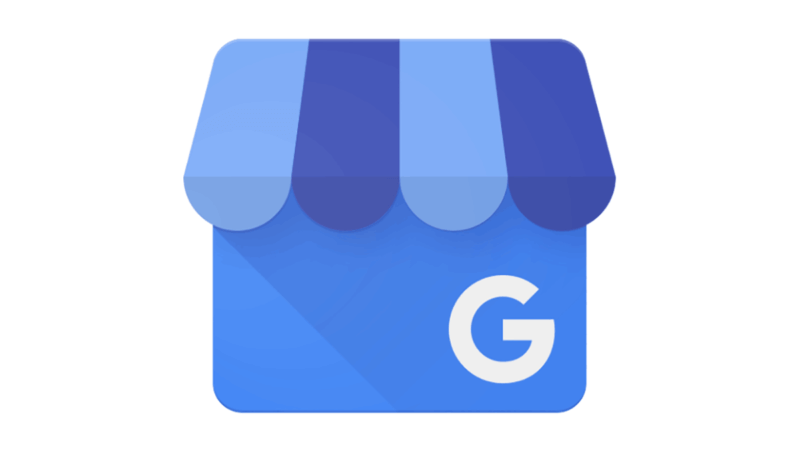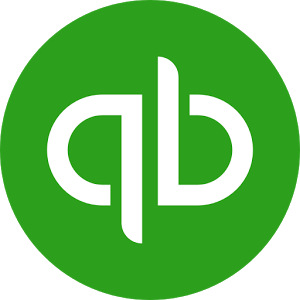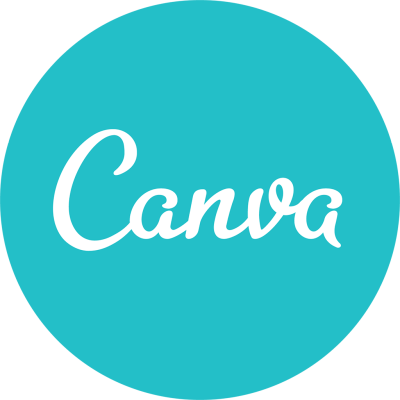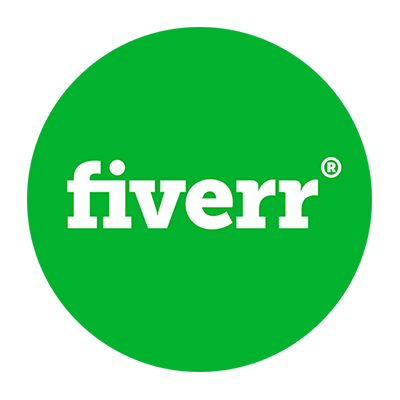How I Started A $15K/Month SAT Tutoring Business While In College
Hello! Who are you and what business did you start?
Hey everyone! My name is Adam Shlomi and I am a 22-year-old senior at Georgetown University from South Florida. I am the founder of SoFlo SAT Tutoring, an online SAT/ACT tutoring company that provides exceptional test prep to students across the country. I started this business in my bedroom almost a year ago while I was recovering from ankle surgery. I couldn’t walk for 6 months and SoFlo gave me the motivation to get up in the morning.
SoFlo currently brings in average revenue of $15,000 a month and has seen a linear increase in student sign-ups each month since its official inception in March 2019. Since our customer lifetime is short –our students study for and take the SAT, get the score they want, and then no longer require our services– we invest in and rely heavily on the quality of the service we provide to attract future customers. Happy customers and significant score increases have helped spread the word and grow the brand.
What's your backstory and how did you come up with the idea?
I come from an entrepreneurial family. My father works for himself and my maternal grandfather started a clothing factory. Working for myself has always been encouraged by my family, but before I could get started, I needed to learn a skill. At Georgetown, I study international politics and business. Most students with these backgrounds go on to work at prestigious firms like J.P. Morgan. I really didn’t know what kind of business I could start, and frankly, planned to work as a (boring) data analyst after graduation.
If you have an idea but don’t have the knowledge to execute, use that idea as motivation and go learn how to turn your vision into reality.
Tutoring first came to mind because I had spent significant time working for other tutoring companies and cutting my teeth/learning how the industry works during my teen years. I first started tutoring when I was 15. I was hired by College Experts, a local test prep center in Davie, Florida. My first student was three years older than me, and I spent our first session teaching him how to use his calculator rather than trying to explain any complicated formulas. Being a student myself, I was able to bring a student’s perspective to tutoring. I worked for College Experts until my senior year of high school when I began tutoring on my own and finding clients on Craigslist.
As a freshman at Georgetown, I began working for CollegeVine, one of the leaders in the online tutoring sphere. At CollegeVine, I learned methods and strategies for effective online tutoring. Maybe more valuable were the lessons I learned about what doesn’t work with online tutoring. After a year, I left CollegeVine and continued tutoring on my own for a few family friends, but mainly focused on keeping my grades up and enjoying college.
Then came the injury. In my junior year, I suffered a horrible ankle injury while camping with friends in West Virginia and was forced to return to South Florida for surgery because of my health insurance policy. I was unable to put any pressure on my leg and my future was in doubt as doctors suggested I might never walk again. I had to do some soul-searching and committed myself to a positive mindset and working every day to improve my physical health.

I always need to be working on a project because I’m the kind of person who can’t sit still. Without classes, I used the extra time I was afforded to begin taking SAT tutoring seriously. I built a website, established a legal company, and marketed the business to friends & family. Thus, SoFlo SAT Tutoring was born. But SoFlo was a part-time operation. During the day, I still worked as a data analyst intern for a local bank, helping them automate credit models.
Eventually, my ankle began to heal and daily physical therapy became a necessity. The comfortable bank job wasn’t able to fit into my recovery schedule and I was forced to quit and focus my attention on the prospect of walking again. I am a firm believer that things happen for a reason, however, and shortly after leaving the bank, word of my SAT tutoring began to spread. Students raved to their friends and parents wrote shining reviews. I hired and trained tutors to handle the influx of new students, and once I started bringing other tutors on board, I realized I had started a real company.
Take us through the process of designing, prototyping, and manufacturing your first product.
When I decided to take SoFlo seriously as a full-time operation, the first things I did were build a website, make a logo, and start posting on craigslist and Facebook. I didn’t hire another tutor for the first 3 months because of 1.) I didn’t have the client demand and 2.) I wanted to work out all the kinks of online tutoring.
I thought about what my SAT tutoring experience was like as a student and how that experience could have been improved. I asked and answered how to onboard students, how long sessions should be, what the right amount of homework was, and what curriculum would work best.
This process was all about using various past experiences and critical thinking to brainstorm how I could create the best tutoring experience for my students. I made templates for text messages to send to parents and students for initial outreach and began to operationalize my variables. I came up with a homework schedule based on students’ current weaknesses and time remaining until test their official test date and tried out a series of different curriculums to find out which one was most effective.

The goal was to design an effective, repeatable system that I could train other tutors to follow.
With the refined system, students were showing better score improvements and good reviews started rolling in on various platforms like Google Business and Facebook. The timing was great because as that system crystallized, our client demand started increasing. I hired our first tutor using Indeed, after sorting through hundreds of resumes. I invested a ton of time training him, and he is still tutoring with SoFlo currently. When a system for tutoring was in place and demand was growing I began to focus on business operations and marketing.
Describe the process of launching the business.
I had read The Lean Startup and was guided by two principles when I started the business;
- Get Customers. Simple: If people are paying for our service then I have a business. If people aren’t paying for our service then I don’t have a business.
- Don’t Spend money. Let’s do everything as lean as possible and establish a profitable business before we start spending money.
For client acquisition, my first step was to make a website. SoFlo started off offering in-person SAT tutoring in South Florida, a less competitive local market before we transitioned to online SAT Prep. I decided to splurge on our website because I knew that a website would be paramount to brand success. So I spent $70 on Thrive Architect -- which, at the time, felt like a huge investment. Compared to our local competitors, the landing page I made in a few nights looked pretty good. It was my first time making a website. I’ve always loved the internet, and found web layout to be like creating an avatar in a video game; building the website was fun.
When it came to growing the business, I stuck to my goal of making every step of the process as cheap as possible. It was like a mini-lesson in procurement. I was always searching online and browsing reddit to find the most affordable product from the best WordPress plugin, to the best server hoster and accounting software. I used communal reviews and information aggregation on Reddit to inform a lot of my initial purchase decisions.
I didn’t expect the business to grow as fast as it did. It was initially just a passion project to keep me sane as I was lying in bed recovering. So it was a learning experience to try my hand at all of these important structural business-owning activities like setting up quickbooks, building a website, signing up customers, hiring employees, and creating social media profiles.
I also didn’t have a business plan when founding SoFlo. In my entrepreneurship class at Georgetown, I was taught to test the market and see if I can survive rather than drafting up a large proposal. I was getting used to waking up every day and deciding which project I wanted to work on. The business grew very naturally as people kept giving me ideas. For instance, someone found my tutoring ad on Craigslist and tried selling me logo design for $100. I went on Fiverr and made a logo for $5.
Some of my biggest successes have come from me getting an idea and then staying up for hours trying to make it happen. I spent hundreds of dollars and at least 6 weeks trying to find a channel to hire tutors. One night at 11 P.M. I had the idea to post on on-campus job boards -- non-professional job boards for student work-study jobs. I went through the top 12 universities in the U.S. and posted our SAT Tutoring job on every board that would accept it. One week later I had over 50 applications. One good idea put into action can be worth months of work.
Since launch, what has worked to attract and retain customers?
My primary focus right now is to keep adding customers. A business that doesn’t have customers isn’t a business, and if people are trying to pay for our service, all the other problems can get solved.
I knew a lot about my potential customers. I’ve been watching my mother make purchase decisions on the internet her whole life. So I designed a website that would be easy for my mom to use. That meant simple big fonts, not too much moving visually, and a clean, modern look.
I also decided to direct website traffic into a phone call with me. I don’t think my mother would hire an SAT Tutor without speaking to them first and feeling comfortable. So I made it a goal to get a customer’s number as fast as possible and then call them up. This sales model was inspired by the bank I had been working at. They send out tons of direct mail pieces and the moment they get a lead, a sales rep is on the phone to establish a relationship.
Then, I searched ‘SAT Prep’ and ‘SAT Tutoring’ on Google. Many of the top results were platforms (Yelp, Tutors.com, Google Local) so I added myself to every single one using my home as the address. I filled out every profile so I could rank as high as possible in search queries. Once I started getting positive reviews, calls started trickling in. Between the professional looking website (especially compared to my competitors) and positive reviews, customer interest kept growing. People are justifiably skeptical of a company they find online, so we operate on a no-contract basis. If someone has a positive experience using our service, they will continue to use our tutoring. If they don’t, they are not locked into a long term contract they are unhappy with.
Not having contracts is a break from the traditional SAT prep model, but it helps us sign up clients who might be hesitant and significantly reduces the headaches and bad reviews caused by unhappy customers.
In order to turn a lead into a customer, we have to provide exceptional service. If I get a call or text from a customer I stop what I’m doing and answer them because they are my first priority. Many people signed up initially because we were responsive, professional, and friendly on the phone. Our promptness was a key differentiator in the beginning because it showed we were putting in the effort.
Another key aspect of customer retention is connecting with the students. We try and hire tutors who are young and charismatic -- seriously, I don’t hire anyone who I don’t like talking to. We’re a company run by young people and many of our tutors are only a few years removed from high school themselves. Being able to connect with students gives us an edge over the service other companies are able to provide.
At the end of the day, we have to make sure students improve on the SAT. If we do a great job and scores improve, customers tell their friends and the SoFlo family continues to grow.

How are you doing today and what does the future look like?
I’ve set a goal to triple SoFlo in 2020. I want to triple the number of students we work with. I think about client acquisition in terms of channels. Yelp, for example, is a channel. Word of mouth is another channel we benefit from. My challenge for 2020 will be finding new channels that generate a positive return on marketing spend. Our current client acquisition cost is ~$60 and that cost is recovered in the first session. As SoFlo grows, I have to be realistic about raising that acquisition cost somewhere between $75-$100.
One of the avenues I’m excited to explore will be using modernpostcard for postal mail retargeting, so after someone visits our website (if we can track their IP address to a mailing address), they will receive a postcard with a discount offer to encourage a signup. This is an experiment that has promise.
We are also starting an SEO campaign. I’m working to build press and domain authority for soflotutors.com with the ultimate goal of producing content like blog posts that will increase website traffic and signups. The obstacle is that a few established companies like PrepScholar already have done such broad blogs on nearly every topic like “When should I take the SAT” to “Here are the 8 tricks for the SAT Writing section,” so we’ll be competing with their content.
I’m about to finish college and move to Brooklyn. I expect to have more time to work on SoFlo because I can make this company my sole focus again. Growth slowed down after I went back to college because I have other obligations like homework and social events that limit me from committing time to my business. I learned more in the 6 months I started this company than in my 3 years of college, and I’m looking forward to going full time.
Through starting the business, have you learned anything particularly helpful or advantageous?
The three main lessons I’ve learned from starting SoFlo:
DO. DO. DO. Being an entrepreneur is defined by doing. I encourage everyone to take the steps needed to turn ideas into reality. Make a website, post flyers, do something to turn your idea into a concrete, tangible operation. New ideas will come flying and keep chasing those. I’ve taken a DIY approach to SoFlo, so I’ve tried solving every obstacle on my own, like setting up my WordPress server or designing our advertisements. SoFlo gives me the chance to learn by doing and through this process I’ve learned about Photoshop, web design, hiring practices, digital marketing, and so much more.
Where can I compete? I think a lot about what my competitive advantages are when picking projects to work on. I’m young, tech-savvy and good at selling products. So it made sense for me to spend time making the nicest website I can and working on the marketing and sales aspects of my company. Finding your strengths and capitalizing on them is what will make your venture take off.
Making Mistakes. After the college admissions scandal broke, I tried to partner with local schools to launch an SAT scholarship to offer free tutoring to students in need. I had printed up some nice flyers and made a website, but every single school refused to partner with us. It wasn’t about profits, I genuinely wanted to give back to my hometown. I realized that I needed to be operating in the digital world, and so I tried again by adding the scholarship to our website and opening it up to all students. Since then it has been a huge success and 15% of our students are currently on the scholarship. Without that initial mistake, I would not have been pushed to find a long term solution.
What platform/tools do you use for your business?
I think of SoFlo as having 4 distinct units:
- Acquiring clients (Customers)
- The tutoring (Product)
- Business operations (billing/scheduling)
- Acquiring tutors (Employees)
For acquiring clients:
- Thrive Architect is an amazing landing page builder, plus the support is great.
- Tawk.to I truly believe click funnels are nearly dead, but our chat feature gets a ton of engagement.
For the tutoring:
- r/SAT has been helpful in designing a curriculum and getting an idea for what students struggle with
- AWW App, Trilogy Mentors, and BigBlueButton have all been used as we try to find a good online whiteboard virtual classroom tool. I am always looking for better options.
For business operations
- Zapier has helped us automate the entire onboarding process. Clients fill out a form and then Zapier automatically adds the student and the parent to our contact book sends them a draft email with a diagnostic test and places their info into a spreadsheet so I can assign the right tutor. Zapier is the best money I ever spent.
- G Suite. I started SoFlo using my personal Google Drive and now I have the entire business running on drive. All of the practice tests, marketing materials, and signup records are on Google.
For acquiring tutors
- Freshteam is the absolute best free HR software I’ve found. They have a paid version, but the free version is unbelievably powerful. It allows us to track applicants, automatically send emails, and then onboard them once we choose to hire.
What have been the most influential books, podcasts, or other resources?
How I Built This by Guy Raz -- I love how unique the stories are. They always inspire me and show how all different types of entrepreneurs exist and there is no one path to success.
Smart People Should Build Things by Andrew Yang. Jeff Reid, the head of the entrepreneurship program at Georgetown University assigned this book to me. Yang makes the argument to make your own trail and avoid banking/law/consulting as a way to continue driving the economy forward. In a school where there is a lot of pressure to work in investment banking or consulting, someone laying out an argument for entrepreneurship was impactful for me.
r/entrepreneur. I love Reddit because as my interests evolve, I am able to find a community that matches me at the time. When I was focused on history, I was always on r/askhistorians, when I was putting my energy into creative writing r/writingprompts became a second home. When I started my business r/entrepreneur provided a lot of inspiration.
Advice for other entrepreneurs who want to get started or are just starting out?
The internet is revolutionary. Every single topic is available to learn, so the argument that “I don’t know how to do something” falls short.
If you have an idea but don’t have the knowledge to execute, use that idea as motivation and go learn how to turn your vision into reality.
Are you looking to hire for certain positions right now?
Most of our team are other young people in graduate school, taking gap years, and some are in undergrad. We have about 20 tutors today from schools like Princeton, Johns Hopkins, and Georgetown. We also have a copy-writer and an operations manager. I believe in hiring really smart people for work that excites them and then staying hands-off. We all work remotely and I make an effort to be as close as possible to both the tutors and the managerial department.
Right now I’m looking to hire for two positions and applications are open at soflotutors.com/careers:
Web Developer: Someone who wants to take the lead on building a free SAT Tutoring platform that fills in the gaps of Khan Academy.
Graphic Designer: I’m looking for a freelancer who is experimental and artistic as we design mailers, online ads, and layout an SAT curriculum.
Where can we go to learn more?
Our website. My email is adam@soflotutors.com and I’m always happy to chat. Our facebook is soflotutors.
If you have any questions or comments, drop a comment below!

Download the report and join our email newsletter packed with business ideas and money-making opportunities, backed by real-life case studies.

Download the report and join our email newsletter packed with business ideas and money-making opportunities, backed by real-life case studies.

Download the report and join our email newsletter packed with business ideas and money-making opportunities, backed by real-life case studies.

Download the report and join our email newsletter packed with business ideas and money-making opportunities, backed by real-life case studies.

Download the report and join our email newsletter packed with business ideas and money-making opportunities, backed by real-life case studies.

Download the report and join our email newsletter packed with business ideas and money-making opportunities, backed by real-life case studies.

Download the report and join our email newsletter packed with business ideas and money-making opportunities, backed by real-life case studies.

Download the report and join our email newsletter packed with business ideas and money-making opportunities, backed by real-life case studies.































